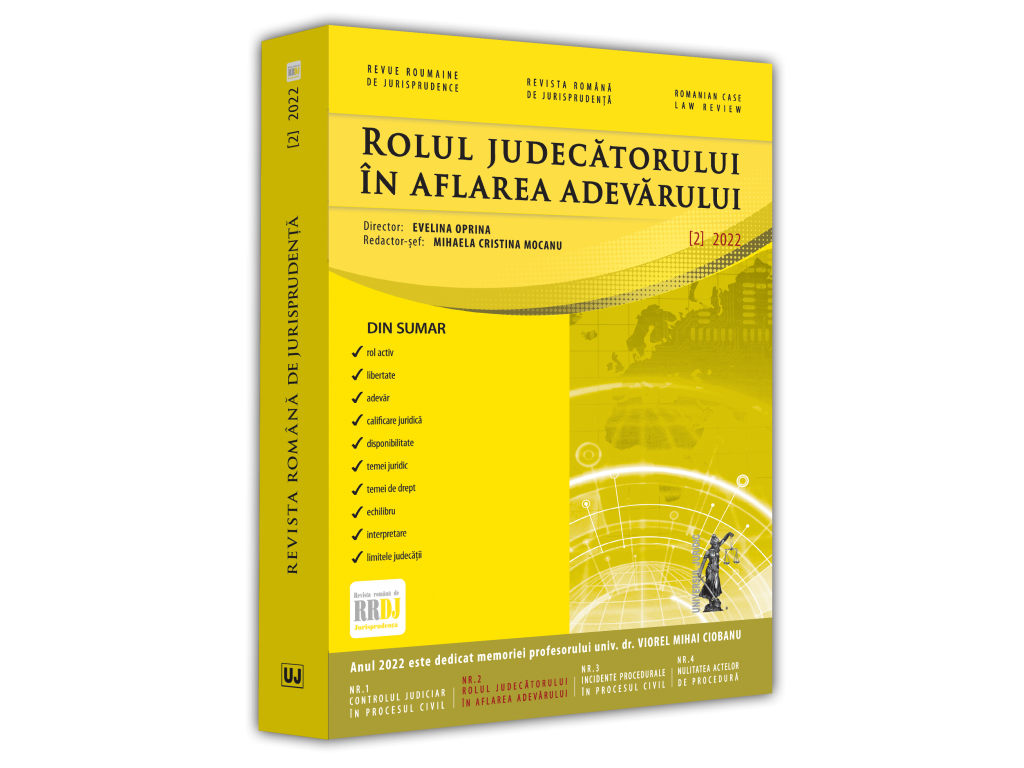Joint files. Suspension of judgment. Interlocutory termination. Possibility of reversing an interlocutory judgment if, prior to the joinder, the application for suspension was rejected in the case that was joined to another case.
JURISPRUDENȚĂ COMENTATĂ ŞI ADNOTATĂ
Abstract
1. The court legally vested after the joinder has the possibility of ruling on the motion for arrest, even if such an motion had previously been rejected in one of the joined cases.
To hold otherwise is to deny the judge the right to decide the case. We are not in the presence of an interlocutory judgment which the court cannot go back on, because in the new motion for arrest the judge considers the situation as a whole in both related cases.
It is therefore not inadmissible to bring a new motion for arrest of proceedings and it is not a reversal of an interlocutory measure but a measure taken for the first time in related cases.
2. The provisions of Article 413(3) of the Civil Procedure Code allow the court that ordered the arrest to review it if the conditions specified by law are met. In the event of the commencement of criminal proceedings for an offence which would have a decisive bearing on the judgment to be delivered, the court may choose, depending on the specific situation, whether the arrest is necessary. Moreover, if it has considered it appropriate to suspend the case, it may revoke the arrest when the criminal proceedings which led to the arrest of the case continue for more than one year from the date of the arrest. It thus follows from the text of the law analysed that the expeditiousness of the trial of the civil case is more important from the legislator's point of view than the maintenance of the arrest measure, even if it was lawfully ordered and based on a close link between the two proceedings.








